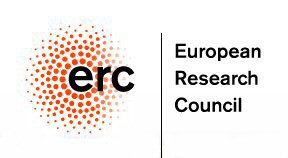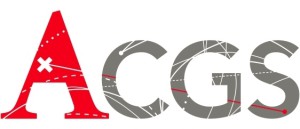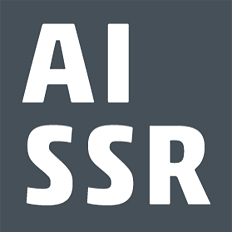The DATACTIVE team will organise the second week of annual Digital Methods Summer School at the University of Amsterdam from July 4 – 8, 2016. We will lead three projects on digital methods for mailing lists, mapping the civil tech landscape and the evolution of digital security tools. The results of our work will be shared on this blog in the following week.
Data Activism
The theme of this year’s Digital Methods Summer School is “Only Connect? A Critical Appraisal of Connecting Practices in the Age of Social Media”. The second week will be entirely dedicated to data activism.
With the diffusion of big data, citizens become increasingly aware of the critical role of information in modern societies. Today’s world is awash with data. Never before have we created such a quantity of data by and about people, things, and their interactions. While this data has captured the imagination of governments and corporations alike, people are also increasingly responding to this new technological landscape.
From open data initiatives to privacy enhancing technologies, a growing number of people are developing new tools and practices in response to massive data collection and availability. People take advantage of the possibilities of data for civic engagement, advocacy, and campaigning (pro-active data activism). At the same time, people resist its harms through the development and use of encryption and free and open source alternatives to centralised software and online services (re-active data activism). Data activism is a signal of a more general change in perspectives and attitudes towards massive data collection. For more see data-activism.net.
Experiments with methods
Data activism emerges at the intersection of the social and technological dimensions of human action. This raises the question: how are we to understand and study this phenomenon? We think that it is important to experiment with methods. We want to investigate how people make use of data and interact with the socio-technical infrastructures that enable their circulation. This is especially relevant, since these are often complex, proprietary and opaque. For this purpose, we want to test and refine research approaches that enable the study of technological practices and infrastructures. This can involve configurations of digital methods and ethnographically informed traditions bridging media studies, science and technology studies (STS), informatics, and anthropology.
- Can we develop an approach to ‘software ethnography’, which traces and explores assemblages of data, infrastructures, technology designers and technology users?
- How can we learn how (big) data infrastructures actually function and are used in practice?
- Technology is always changing. How can we trace changes to the socio-technical infrastructures of tools over time?
- How can new software tools help us understand the workings of different kinds of data infrastructures? Can we develop tools to reverse-engineer algorithms, analytic techniques, or surveillance infrastructures?
Our projects
Mapping the Civic Tech landscape using digital methods
Civic Technology has become a popular term over the past years. Whilst there is no clear definition of the term, the wider civic tech scene spans from business-oriented tech start-ups towards (digital) social and political activist groups. However, attention is often disproportionately directed towards creation of tools and technologies at the expense of the development of other capacities needed to pull them to work in the service of social and democratic goals.
In this project we will apply various digital methods in order to explore the fabrics of civic tech in the digital.
Evolution of digital security tools – sociotechnical infrastructures of security tools
For this project we will trace changes in the chat application ecosystem try to understand the evolution of their design. Encrypted chat applications such as whatsapp, signal, telegram, and others have garnered a lot of attention in the last couple of years, with increasing public awareness and confusion over their relative merits.
Signal, a tool developed within the free libre open source software community, has recently begun contributing to the infrastructure of closed, commercial tools such as whatsapp and now Google Ello, leading to pushback in the community. As Signal has become a product, its lead developer has written that he sees less importance in federating its infrastructure with other free and libre open source tools, breaking both a formal and informal code among free libre open source developers. As researchers interested in tracing the evolution of sociotechnical infrastructures, we argue that the evolving ecosystem of chat tools offers a great opportunity to develop DATACTIVE’s ‘infrastructure ethnography’ both in method and object of study.
Discussions about encrypted chat apps generally focus on issues of usability and design. Instead, the extent to which encrypted chat apps are sustainable is just as, and maybe even more, important. This research project focuses on how infrastuctures are shared and maintained and thereby aims to trigger discussion about the sustainability of applications for encryption.
Digital methods for mailing lists
The Big Bang tool can be used to study collaborations in mailing lists and on github. We want to use this tool to study the composition and development of the ICANN community. Are there different socio-technical imaginaries, across different ‘generations’ of users? Which words or phrases are used at what time? To what extent have conversations about rights spread from civil society discourse to the more general ICANN (industry-related) discourse?


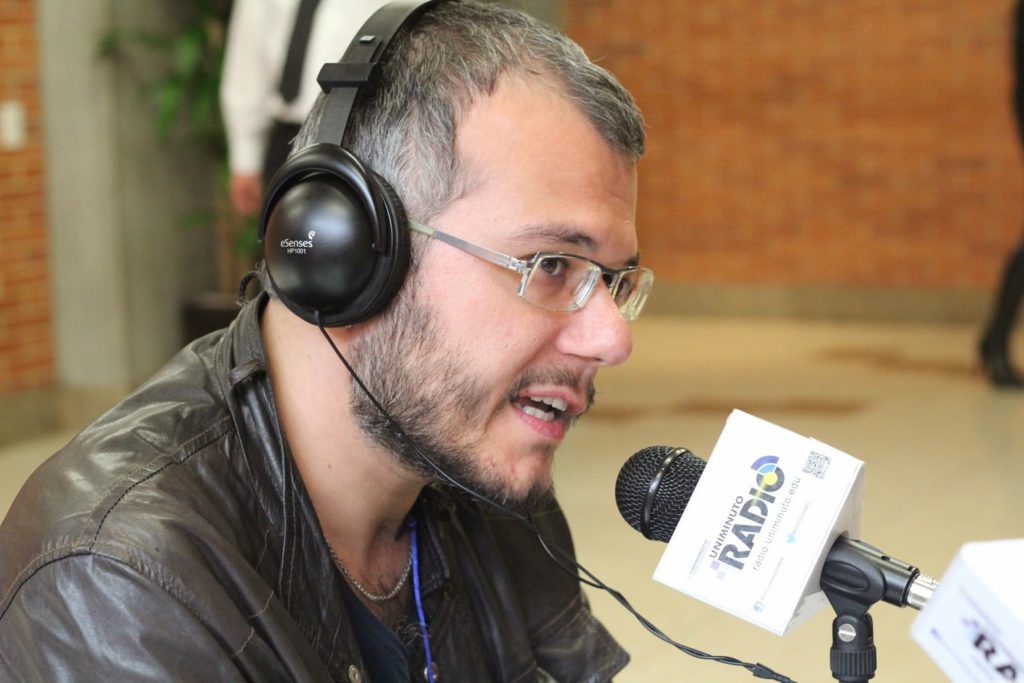
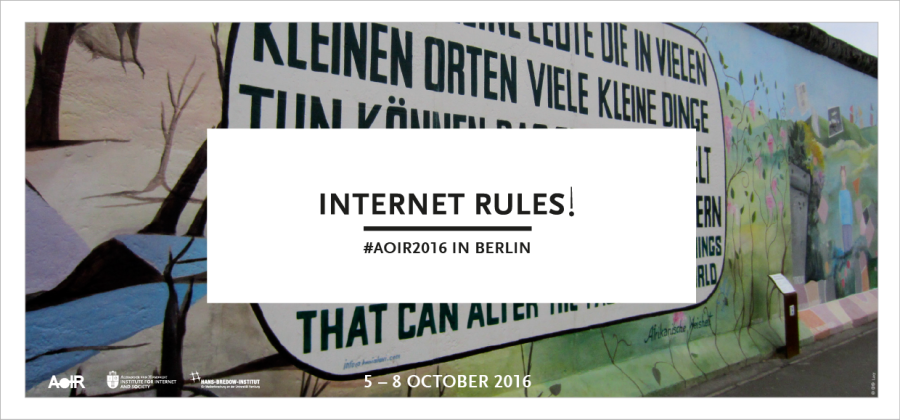

 Just in time for the Contentious Data kick-off workshop on September 15, we are happy to announce that DATACTIVE has a new logo! The design is by Federica Bardelli and Carlo De Gaetano, who explain the concept as follows:
Just in time for the Contentious Data kick-off workshop on September 15, we are happy to announce that DATACTIVE has a new logo! The design is by Federica Bardelli and Carlo De Gaetano, who explain the concept as follows: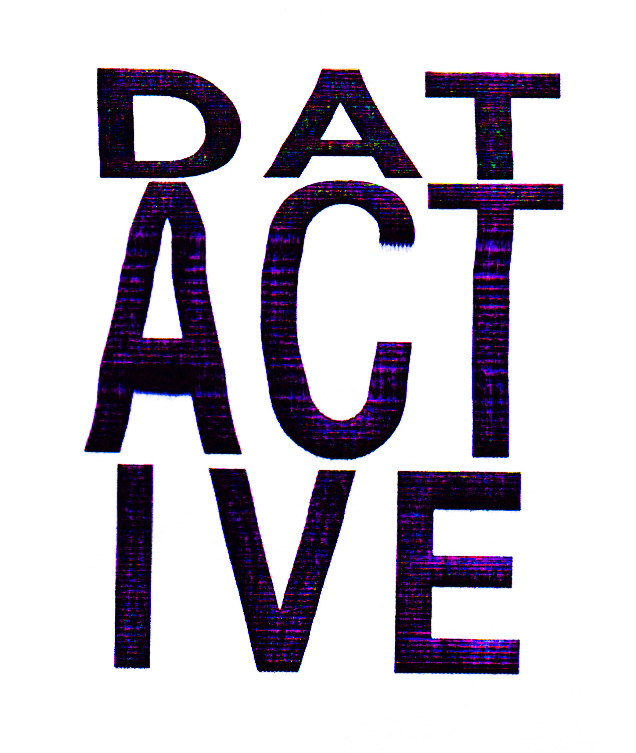
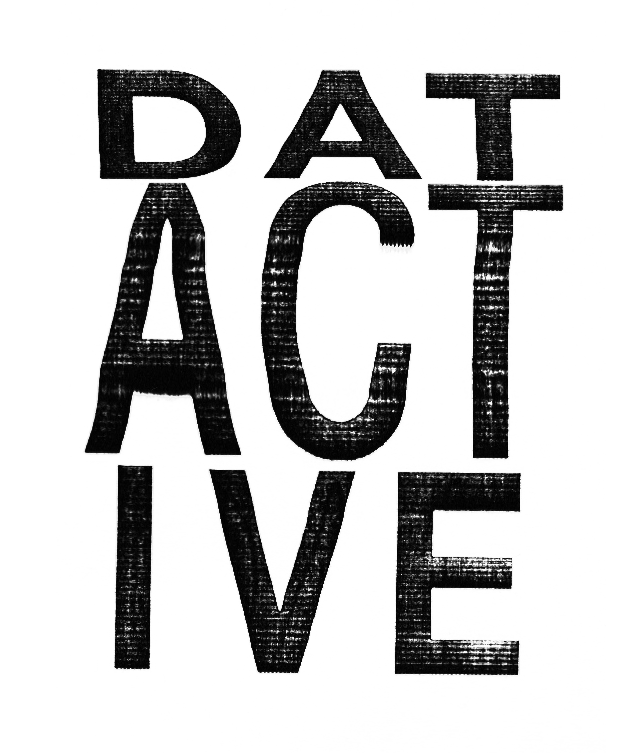
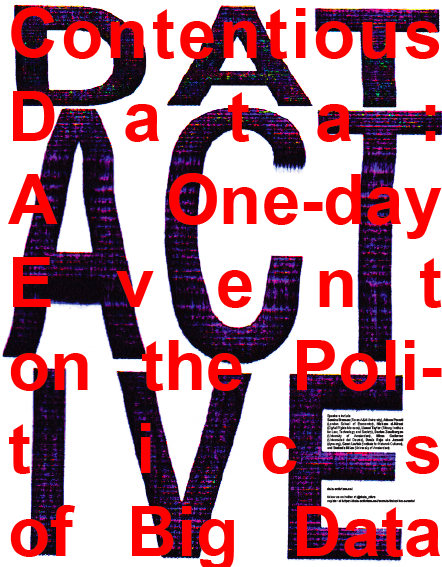
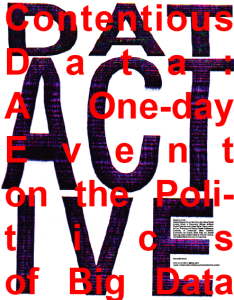 ontentious Data is the kick-off event of
ontentious Data is the kick-off event of 